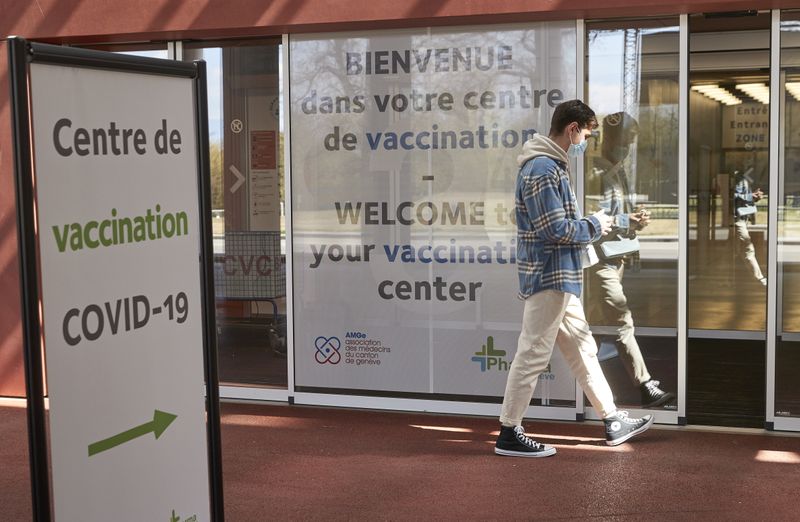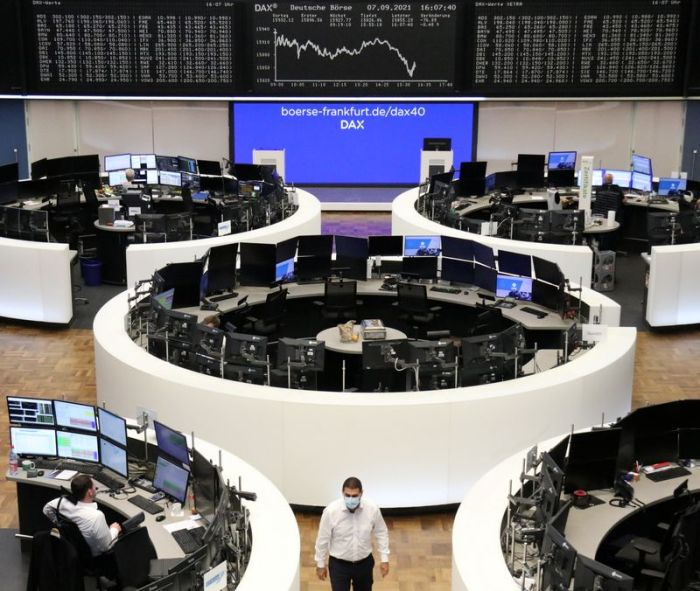ZURICH (Reuters) -People will need to show a COVID-status certificate to enter bars, restaurants and fitness centres in Switzerland from Monday, the government ordered, in a move to relieve pressure on hospitals that are struggling to cope with a fourth wave of infections.
The government last week had held fire on the move – set to last four months initially – amid a public debate over whether it was going too far to infringe individuals’ liberty.
But with the situation in hospitals strained and some postponing operations, the cabinet pushed ahead on Wednesday with the plan.
“The situation remains unstable with more than 3,500 cases today,” Health Minister Alain Berset told a news conference in Bern. “The alternative is to close everything, and we will do our utmost to avoid that.”
The Swiss COVID certificate provides proof of vaccination, recovery from infection or a negative test result.
The hospitality sector blasted the move, which it said would hurt sales just as the pandemic was showing signs of easing.
“This decision is disproportionate and leads to a blatantly unequal treatment of the population,” said Casimir Platzer, president of hospitality and dining sector lobby GastroSuisse, demanding the state compensate businesses for lost revenue.
Its expanded use has moved into focus as the number of new infections https://www.covid19.admin.ch/en/overview?time=total in Switzerland and tiny neighbour Liechtenstein show the highest incidence rate in continental Europe.
More than 800,000 have contracted the respiratory disease since the pandemic began. The death toll has exceeded 10,500.
Just over half the Swiss population has been fully vaccinated, lagging the rate in other European countries.
The government is also mulling new travel restrictions for people who had not been vaccinated or recovered from the virus. Those could include quarantines or COVID-19 testing.
It may require individuals to provide a negative test result to enter the country, no matter from where or how they arrive.
(Reporting by Michael Shields and Brenna Hughes Neghaiwi, editing by Kirsti Knolle and Angus MacSwan)



























